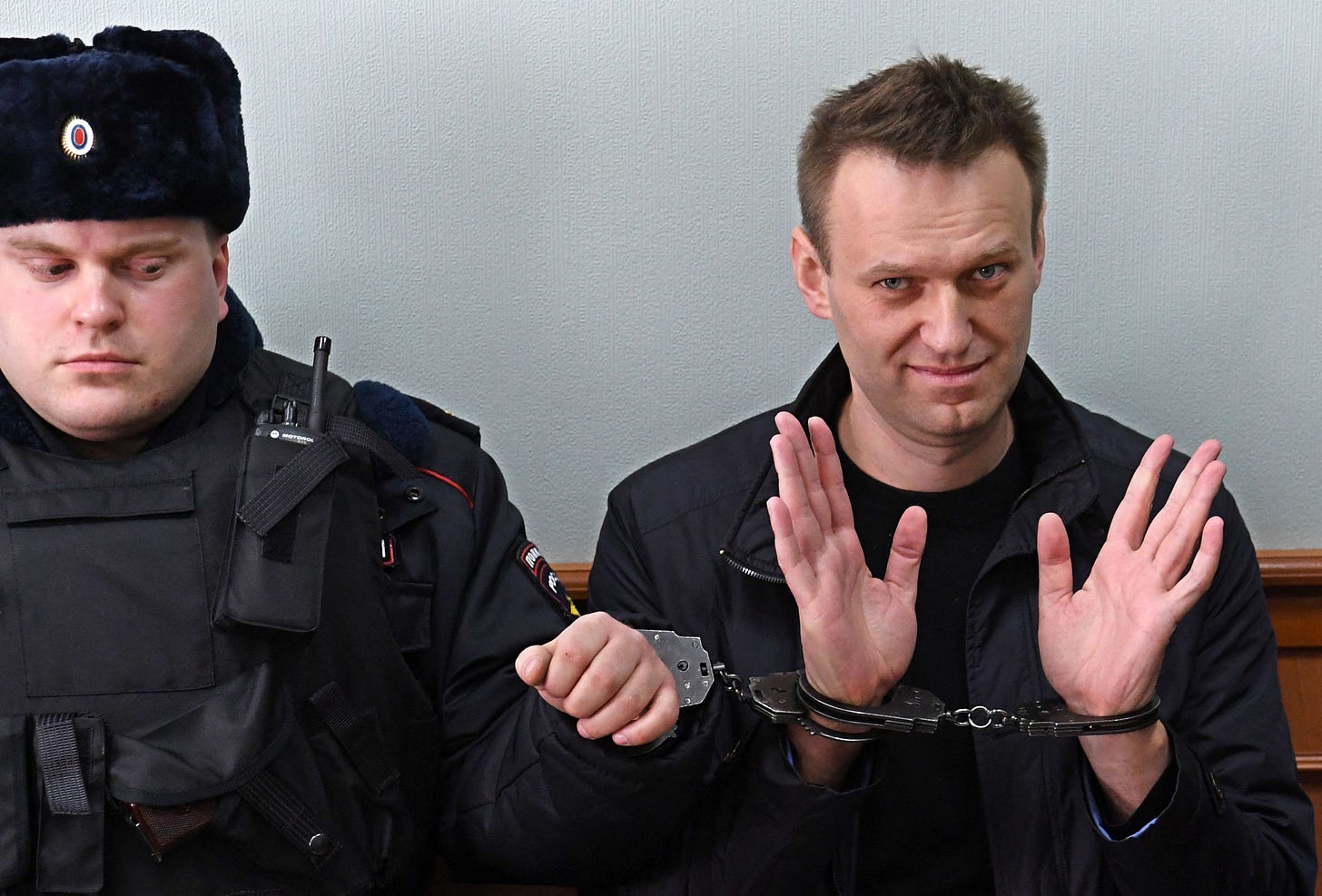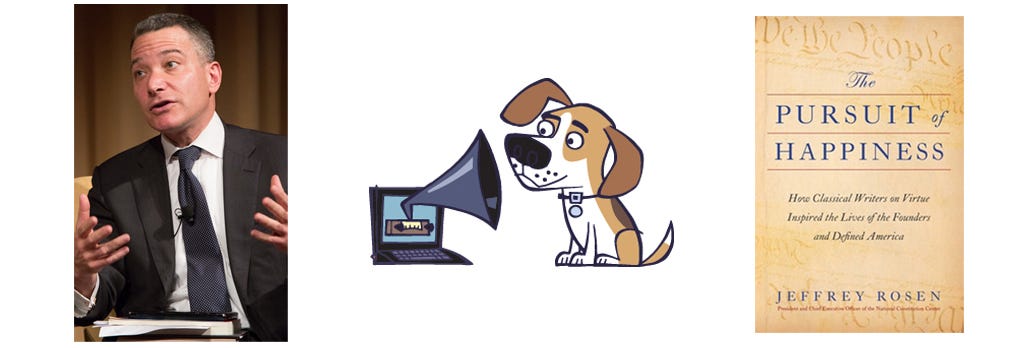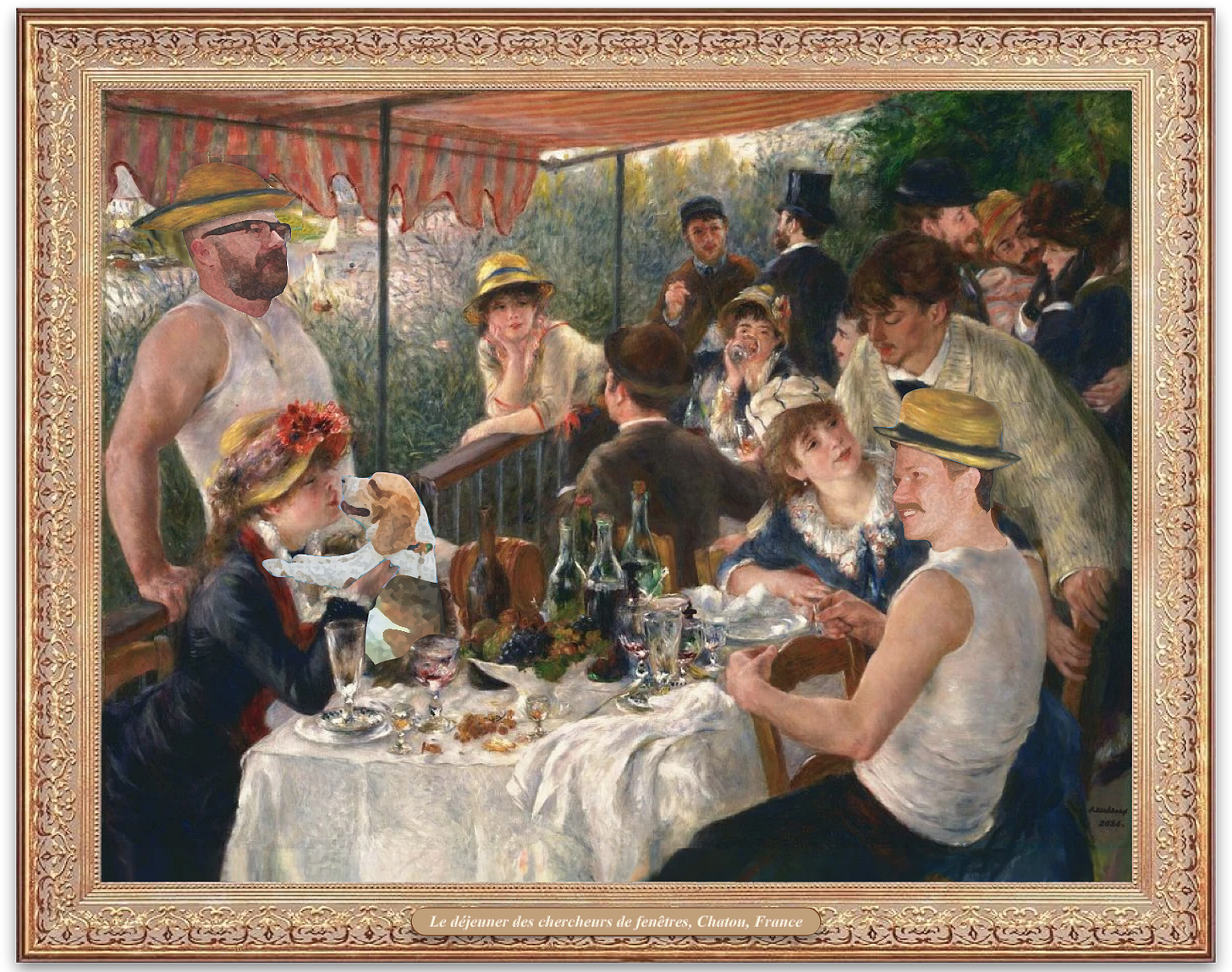“Well, I now have a sheepskin coat, an ushanka hat (a fur hat with ear-covering flaps), and soon I will get valenki (a traditional Russian winter footwear). I have grown a beard for the 20 days of my transportation. … [The trip was] pretty exhausting, but I’m still in a good mood, as befits a Santa Claus,” - Alexei Navalny, tweeting from a prison above the Arctic Circle last December.
“But no one would ever dare accuse Stalin of having a sense of humor!” - Aleksandr Solzhenitsyn, Gulag Archipelago.
It is a rare and precious thing when a human being possesses both bravery and humor in copious amounts. But Alexei Navalny was a rare and precious human being. His sense of madcap fun complemented his adamantine courage, and gave it a kind of humility. There was no crisis — even his imminent imprisonment, solitary confinement, and likely death — that Navalny couldn’t leaven with a joke. The very day before his murder, he quipped in court, “Your Honor, I will send you my personal account number so that you can use your huge salary as a federal judge to ‘warm up’ my personal account, because I am running out of money.” Even the judge cracked a smile.
Navalny seemed not to fear Putin in the slightest, let alone respect him, but to see the short, pudgy, Botoxed apparatchik as a ridiculous, lying — and constantly scared — thief. His fundamental critique was that Putin was in it for the money, for his $1.3 billion palace, his dachas, his yachts, his casino, his whores. This indeed was how he mocked the entire Putin gang:
Some [of Navalny’s YouTube reports] used drone footage of Italian villas owned by Putin’s underlings. Others plucked evidence from photos that these officials or their relatives posted online, flaunting a yacht or luxury watches. One technocrat had a habit of flying his pet corgis to dog shows on a private jet. In his videos, Navalny delivered these findings in an irreverent style, like a wisecracking detective for the YouTube generation.
And he understood the diorama of deceit Putin needed to keep up appearances: “Our leaders lie about everything, big and small,” he once said in court. He went on:
Putin gave a speech yesterday in which he said “We don’t have palaces.” We’ve been taking photos of his palaces for ages — three a month! We publish them and we’re told “We don’t have palaces”! Why do you tolerate these lies? Why do you look the other way? I’m sorry if I’m dragging you into a philosophical discussion but life is too short to look the other way.
In his own case, he was of course brutally right. But even if he’d managed to survive for more than 47 years, it’s unlikely he would have been able to marshal mass support against Putin in the foreseeable future.
Navalny had a tough time breaking through the wall of government propaganda at the best of times; the nationalism Putin has captured with his imperialism has a deep and wide base of support in the country at large; the annexation of Crimea is hugely popular; the war to occupy all of Ukraine, despite the staggering losses, has broad support (though it may be flagging); and the Republican Party has given Putin an unexpected breathing space in his campaign to intimidate the democracies of Europe. These are not propitious times for opponents of tyrants.
Nonetheless, Navalny clearly rented vast amounts of space in Putin’s head. His very name never crossed the dictator’s lips. And you can see why. At 6’3”, the handsome, blond Russian patriot and heart-throb, with a beautiful wife he so abundantly loved, and their tangle of blond kids, is straight out of a Slavic Abercrombie & Fitch ad. Watch footage of the bald 5’7” Putin being questioned about Navalny and you’ll see him tense up, his lips purse, and his eyelids flutter ever-so-slightly. He saw him the way Trump sees Obama. And it clearly consumed him.
For a while, he tolerated Navalny’s provocations to avoid elevating him in the public eye. But in 2020, Putin finally ordered Navalny’s death by the chemical agent, Novichok, his signature method of assassination. Because of a diverted flight and emergency treatment in Germany, he survived to tell the story of his failed murder. Putin, of course, denied everything the day after Navalny detailed the plot, unraveled by the journalist Christo Grozev. But, unknown to Putin, Navalny had already managed to punk one of the identified murderers, by calling him cold and pretending to be a superior. The henchman had confirmed all of it. The tape of that phone call was then broadcast to the world the day after Putin’s denial, brutally exposing him as he had never been exposed before.
In the Oscar-winning CNN documentary, Navalny, you can watch Navalny call the man who tried to murder him on the phone, put on his apparatchik voice, and slowly get him to cough up crucial details confirming the plot. It’s a tour de force. As the man slowly revealed what had gone wrong with their scheme, Navalny, never breaking character, silently high-fived those around him, grinning ear-to-ear. And then, after he hung up, he actually expressed pity for the man, who would of course face death for his mistake.
And I thought to myself: Navalny had just endured a terrible poisoning that took months to recover from. Yet here he was able to stay calm when talking to one of his actual would-be assassins, and even feel empathy for him. And then, shortly thereafter, you watch him get on a plane and actually fly back to his homeland into the hands of the goons of that humiliated dictator. He was never free again. The last few years have seen such a dreary display of utter cowardice everywhere. Except here. In an impenetrable smog of opportunism, Navalny was a flashlight of principle.
Why did Putin choose to finish him off now? Who really knows? But it isn’t, I fear, a sign of weakness. The Russian military just scored a small victory in Ukraine, retaking Avdiivka; US military aid to Ukraine is stalled in the Congress; the Russian presidential “election” is coming up and Putin will triumph; the Russian economy has grown more than the US’s or Western Europe’s since the war began, its trade re-oriented toward the East, in an unholy alliance with China, North Korea, and Iran; Putin just got publicly fellated for two whole hours by Tucker Carlson, who never mentioned Navalny once; and the Munich Security Conference was taking place — which in 2007 was “Putin’s stage for declaring what would become his war against the West,” as Masha Gessen notes. The murder was a mob boss proving his power by ordering a whack.
And it seems to me to demand a response more potent than the round of sanctions Biden just introduced and Navalny often mocked. It demands that we break the logjam in the Congress and pass stand-alone military aid to Ukraine as fast and as aggressively as possible. Readers know I’ve been a skeptic about the Ukraine war, because it is not a vital US interest, and because the deep connections between Russia and Ukraine make this more complicated than the invasion of one self-evidently discrete country by another. Navalny himself thought Crimea belongs to Russia; he was the son of a Russian mother and a Ukrainian father, blending the two identities for much of his life. And it will not be possible to eject Russia from the East of Ukraine and Crimea, in the near or medium future.
But we can do our part to strengthen Ukraine’s position in the partition to come, without any pretensions for total victory. We can strengthen NATO, and continue to urge Europe to do more. The truth is: Europe has woken up to its own defense. They’ve displayed remarkable unity, and are finally our near-equals in support for Ukraine. If you want a less US-dependent NATO, as Senator Vance says he does, this is something you should reward, not punish.
Navalny’s death shows us something else as well. We lose something profound if we mark his assassination with supine acquiescence. Courage should beget courage. Navalny was a proud Russian nationalist, but he represented the core principles of the West; and they are worth prudently defending abroad as well as at home. In Navalny, you see a commitment to empirical truth over ideological lies; to transparency over corruption; to courage over brute force; to humor over power; and to freedom over tyranny. We may be chastened as a super-power, and we have every reason to be. But something deep is at stake here in the wake of Navalny’s murder. And we betray our souls if we let him die in vain.
(Note to readers: This is an excerpt of The Weekly Dish. If you’re already a subscriber, click here to read the full version. This week’s issue also includes: my long chat with Jeff Rosen on how the Stoics shaped the founding of America; reader dissents over neoracism, Biden, and my views on foreign policy; 11 notable quotes from the week in news; 22 pieces on Substack we enjoyed on a wide array of topics; an introduction to Truman, my new dog; a Mental Health Break of a dreamy Pink Floyd song; and, of course, the results of the View From Your Window contest — with a new challenge. Subscribe for the full Dish experience!)
From a new paying member:
I’m joining the Dish because I recently saw you on Bill Maher and researched you online. Appreciate very much your balanced and enthusiastic yet heartfelt positions. Keep up the good fight!
Another newcomer:
The few Dish pieces I have read to date strike me as being thoughtful and balanced, with an evident willingness to be critical of all sides in a debate/conflict. Social media absolutely needs voices of reason, and critical analysis that isn’t confined by dogmatic thought.
New On The Dishcast: Jeffrey Rosen
Jeff is the president and CEO of the National Constitution Center, where he hosts “We the People,” a weekly podcast of constitutional debate. He is also a professor of law at the George Washington University Law School, and a contributing editor at The Atlantic. A former house-mate of mine and friend for 40 years, he began his journalistic career writing some stellar essays on the Supreme Court in the TNR when I was editor. The author of many books, his new one is The Pursuit of Happiness: How Classical Writers on Virtue Inspired the Lives of the Founders and Defined America. It’s a paean to the Stoics.
Listen to the episode here. There you can find two clips of our convo — on the transcendence of deep reading in the age of distraction, and the hypocrisy of many Founding Fathers on slavery. That link also takes you to commentary on our episodes with Nate Silver on gambling and Isikoff/Klaidman on Trump’s trials. We also hear from dissenters over my views on foreign policy, Ukraine, and Biden’s prospects for November, with my responses throughout. Plus, a new PSB mini-doc!
Browse the Dishcast archive for an episode you might enjoy (the first 102 are free in their entirety — subscribe to get everything else). Coming up: Rob Henderson on class and “luxury beliefs,” Christian Wiman on resisting despair as a Christian, George Will on Trump and conservatism, Abigail Shrier on why the cult of therapy harms children, Adam Moss on the artistic process, and Richard Dawkins on religion. Please send any guest recs, dissents, and other pod comments to dish@andrewsullivan.com. A new subscriber writes:
Thank you for the Dishcast. I listen not only for the thought provoking content, but also for your heart. I sense you have a deep respect for others simply for being fellow humans.
Face Of The Week
Big week chez Sully. Above is a stray mutt recently found wandering alone, without a collar, in West Virginia. I became his lucky new owner, thanks to City Dogs Rescue. I’m calling him Truman, after Harry, not Capote. And he’s already giving ‘em hell.
Dissent Of The Week: Neoracism, Ctd
A reader writes:
Please learn something about the history of racism and its continuing economic exploitation before writing inconsiderate stuff like:
Now look at the difference between family structure among many Asian-American groups and that of black Americans. And how can one blame “white supremacy” for the constant murderous mayhem of urban black spaces? Only by removing from young black men any concept of their own agency and humanity.
Family structures are destroyed by poverty, drugs and the carceral state. I include the foster system as part of the carceral state. Some mothers or fathers may have felt the need to steal or sell drugs to feed their family (parents or siblings or children), and then they get sent to prison and the children grow up poor and fatherless, undernourished and uneducated. It’s a generational cycle — not easy for a third or fourth generation to pull him or herself up by bootstraps. To do that, you need boots!
Read the rest of that dissent, along with my response, here. More dissents on different topics are over on the pod page. Follow more Dish discussion on the Notes site here (or the “Notes” tab in the Substack app).
In The ‘Stacks
This is a feature in the paid version of the Dish spotlighting about 20 of our favorite pieces from other Substackers every week. This week’s selection covers subjects such as the GOP’s imploding impeachment case, Google’s woke AI, and trans breastmilk. Below are a few examples, followed by a brand new substack:
Freya India is gobsmacked by the peer pressure to broadcast mental health over social media. She also asks, “Are you asexual or on antidepressants?”
Susan Orlean starts a ‘stack.
You can also browse all the substacks we follow and read on a regular basis here — a combination of our favorite writers and new ones we’re checking out. It’s a blogroll of sorts. If you have any recommendations for “In the ‘Stacks,” especially ones from emerging writers, please let us know: dish@andrewsullivan.com.
The View From Your Window Contest
Where do you think it’s located? Email your guess to contest@andrewsullivan.com. Please put the location — city and/or state first, then country — in the subject line. Proximity counts if no one gets the exact spot. Bonus points for fun facts and stories. The deadline for entries is Wednesday night at midnight (PST). The winner gets the choice of a VFYW book or two annual Dish subscriptions. If you are not a subscriber, please indicate that status in your entry and we will give you a free month subscription if we select your entry for the contest results (example here if you’re new to the contest). Happy sleuthing!
The results for this week’s window are coming in a separate email to paid subscribers later today. Here’s a followup on a recent contest from the sleuth who goes by A. Dishhead:
Hello! I’ve been meaning to make more postcards in 2024, but not every window exactly invokes inspiration. But, seeing as I’d been kind of bummed I didn’t have the time to do the Maison Fournaise window, A. Dishhead style, here it is now instead! Better late than never?
I don’t know, but your look says to me, “This is not my kind of party,” while the somewhat awkward angle of Chris’ neck says, “I don’t have enough publicly available images to be easily photoshopped,” haha. Or maybe he’s staring off into the distance wondering why Mr. Beast seems to be in this Renoir? Regardless, that beagle is definitely having the most fun ...
See you next Friday.






